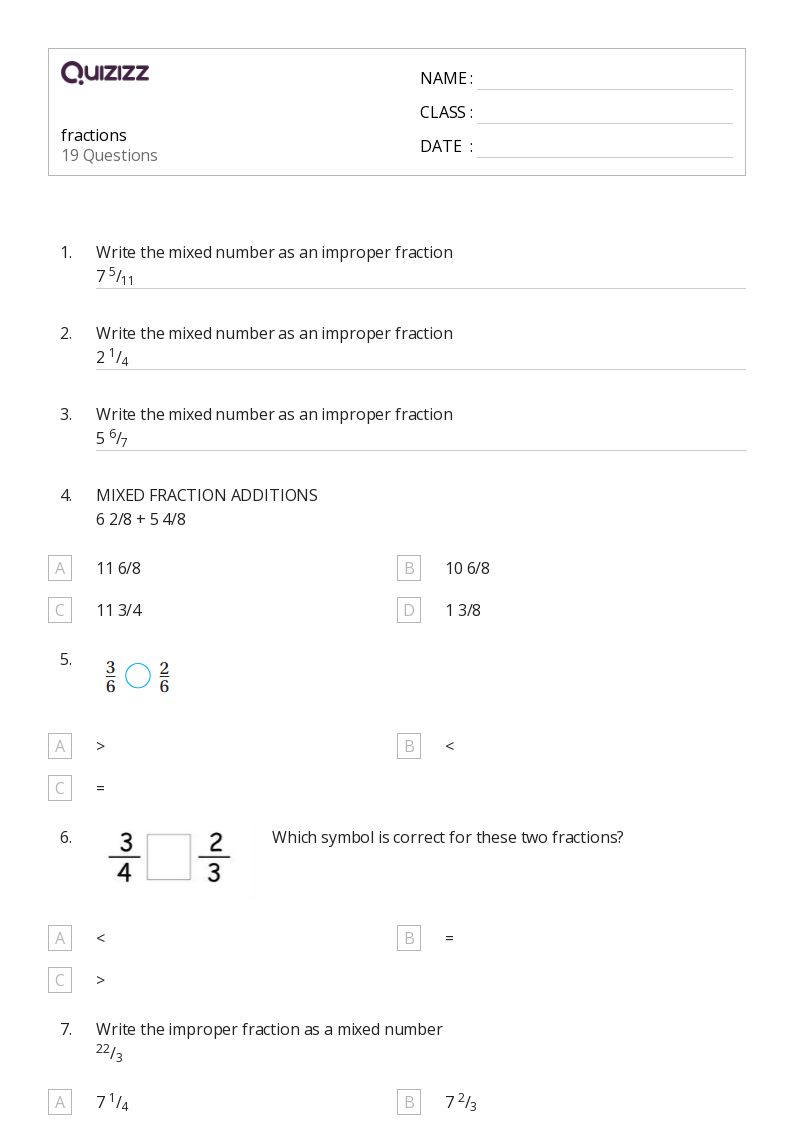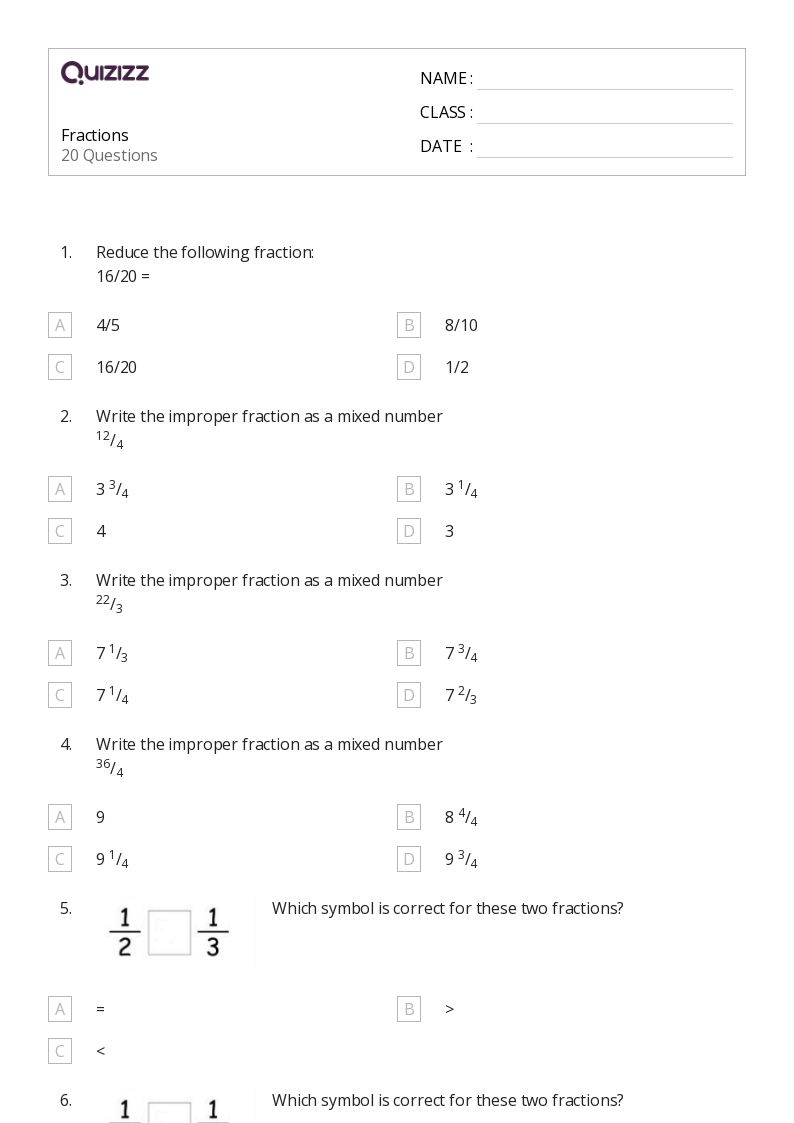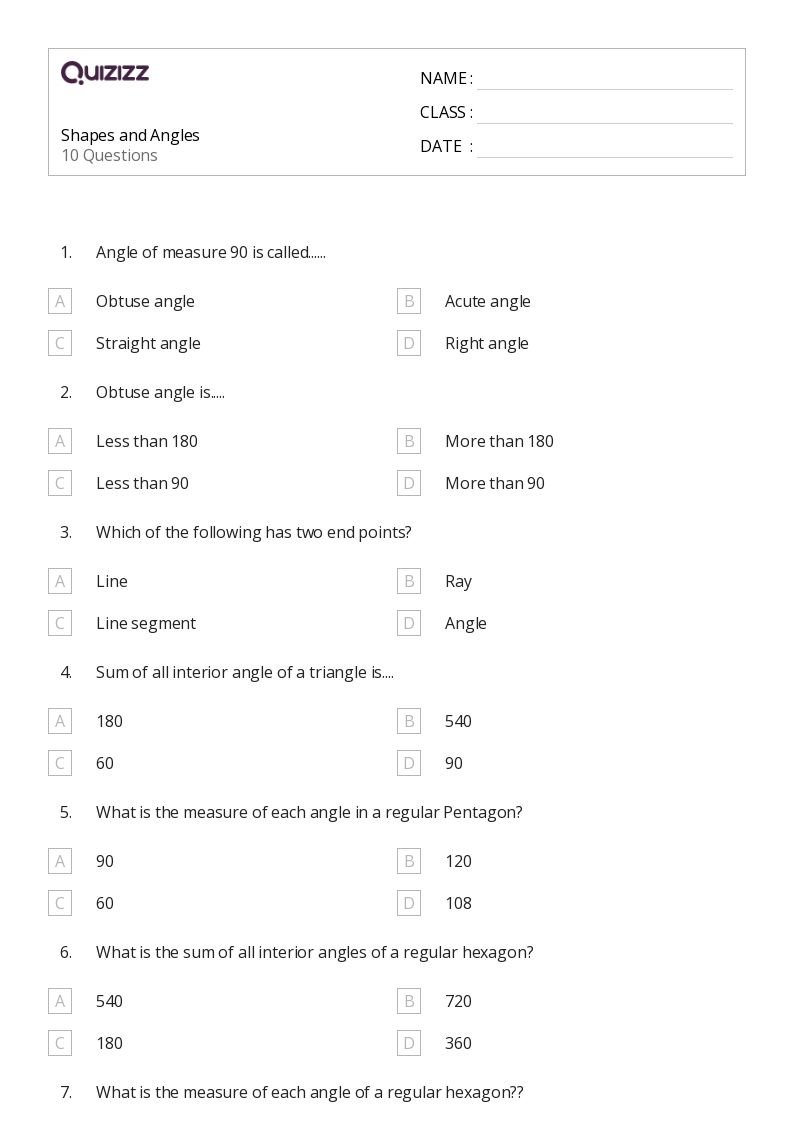
19 Q
1st - 5th

13 Q
5th

20 Q
5th

25 Q
5th

15 Q
5th - 6th

16 Q
5th

10 Q
5th

15 Q
5th

10 Q
5th

20 Q
5th

20 Q
5th

45 Q
5th

13 Q
4th - 5th

20 Q
5th

10 Q
5th

15 Q
5th - 6th

10 Q
5th - 6th

10 Q
4th - 5th

13 Q
5th

11 Q
5th

10 Q
5th

21 Q
4th - 5th

13 Q
5th

10 Q
5th
Explore Fractions and Fair Shares Worksheets by Grades
Explore Other Subject Worksheets for class 5
Explore printable Fractions and Fair Shares worksheets for 5th Class
Fractions and Fair Shares worksheets for Class 5 are an essential tool for teachers to help their students master the concept of fractions in mathematics. These worksheets are designed specifically for Class 5 students, providing them with a variety of exercises and activities that focus on understanding fractions, their representation, and their application in real-life situations. Fraction Models play a significant role in these worksheets, as they enable students to visualize and comprehend the concept of fractions more effectively. Teachers can utilize these worksheets to supplement their lesson plans and provide additional practice for their students, ensuring that they have a strong foundation in fractions and are well-prepared for more advanced mathematical concepts.
Quizizz is an excellent platform for teachers to access a wide range of Fractions and Fair Shares worksheets for Class 5, along with other valuable resources. This platform offers interactive quizzes, engaging games, and other educational tools that can be used to reinforce the understanding of fractions and Fraction Models. Teachers can easily customize the content on Quizizz to suit their specific lesson plans and the needs of their Class 5 students. In addition to worksheets, Quizizz also offers various other resources, such as videos and presentations, that can be used to enhance the learning experience for students. By incorporating Quizizz into their teaching strategies, educators can ensure that their Class 5 students have a comprehensive understanding of fractions and are well-equipped to tackle more complex mathematical concepts in the future.
